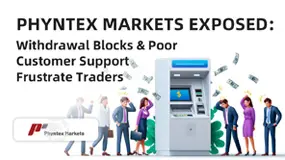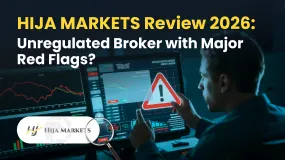Abstract: This article will provide an overview of these two strategies, examining what sets them apart and why each has its place in today’s markets.

The financial markets have evolved rapidly with the advancement of technology, bringing in new trading strategies and tools that have changed the way people approach investing. Two prominent strategies that have grown in popularity are prop trading and algo trading. Though they share similarities in using sophisticated analysis and leveraging capital for potential profit, they differ significantly in approach, goals, and tools. This article will provide an overview of these two strategies, examining what sets them apart and why each has its place in todays markets.
What is Prop Trading?
Prop trading (or proprietary trading) refers to when a financial firm or bank trades stocks, bonds, currencies, or other financial instruments with its own capital instead of clients' funds. The primary goal is to generate direct profit for the firm.
Key Characteristics of Prop Trading
Firm's Capital: Firms use their own funds rather than client investments, which can increase the profit potential.
Risk and Reward: Prop trading can yield high returns, but it also comes with a high level of risk since firms are investing their own capital.
Professional Traders: Many firms hire skilled traders with experience in quick decision-making and understanding market conditions.
Benefits of Prop Trading:
High Earning Potential: With access to significant capital, traders can execute larger trades that can yield higher profits.
Access to Resources: Prop traders often have access to advanced trading platforms, data, and tools that arent typically available to retail traders.
Learning Opportunities: Many proprietary trading firms offer mentorship and intensive training, making them great environments for developing professional trading skills.
What is Algo Trading?
Algorithmic trading (or algo trading) uses automated programs to execute trades based on pre-defined criteria, such as timing, price, or market conditions. Algorithms analyze vast amounts of market data and can execute trades at speeds and frequencies that human traders can't match.
Key Characteristics of Algo Trading
Automation: Trades are executed automatically based on coded algorithms, reducing the need for human intervention.
Speed and Precision: Algorithms can instantly react to market changes, executing orders at optimal prices and times.
Quantitative Focus: Many algo traders use quantitative models to analyze historical data, identify patterns, and forecast price movements.
Benefits of Algo Trading:
Efficiency: Automated trading eliminates emotional bias and can optimize trades, allowing for high-frequency strategies that capitalize on small price movements.
Backtesting: Traders can test algorithms on historical data to assess potential performance, refining their strategies before live execution.
Consistency: Algorithms follow predetermined rules, which can lead to a more disciplined approach to trading than manual methods.
Current Trends in Prop and Algo Trading
In recent years, both prop and algo trading have adapted to a rapidly changing market environment:
AI-Driven Algo Trading: Artificial intelligence (AI) and machine learning are enhancing algorithmic models. AI algorithms can adjust strategies dynamically based on evolving market conditions, creating more adaptive trading systems.
Hybrid Models: Some prop trading firms are integrating algorithmic systems, combining the human intuition of experienced traders with the computational power of algorithms to gain a competitive edge.
Rise of Proprietary Algo Trading Firms: Many new firms specialize solely in algo trading, using proprietary algorithms and strategies to compete in the high-speed trading space. This trend is particularly prevalent in cryptocurrency markets, where algo trading has become dominant.
Increased Focus on Regulation and Compliance: Regulatory bodies around the world have increased scrutiny of algorithmic trading, aiming to mitigate risks like flash crashes and unfair market manipulation. Both prop and algo trading firms are investing in compliance to ensure adherence to new regulations.
Which Trading Method is Right for You?
For individual traders, algo trading might be more accessible, given the rise of retail trading platforms that support algorithmic strategies. However, those interested in a more hands-on approach, with the potential to trade larger sums, might find opportunities in prop trading firms if they are prepared to manage the risks involved.
Conclusion
Prop trading and algo trading each offer unique advantages and require different skill sets and resources. Prop trading‘s reliance on human insight and significant capital can lead to high returns, while algo trading’s automation and efficiency provide consistent, disciplined trades. The best choice depends on individual goals, risk tolerance, and the level of resources available. As technology and regulation continue to shape the trading landscape, both methods will remain essential components of the financial ecosystem.










